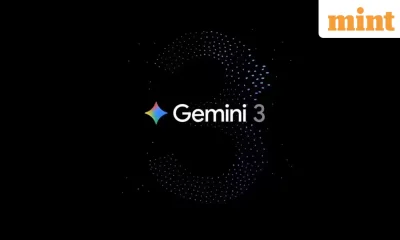Metaverse
Deepfake dilemma! News icons warn public as manipulated videos spread; here’s what happened – Crypto News
In yet another deepfake misuse, a Facebook video has circulated widely, featuring CNN’s Wolf Blitzer seemingly promoting a diabetes drug to thousands of viewers. Additionally, another manipulated clip portrays “CBS Mornings” host Gayle King endorsing weight loss products, reported AFP.
These instances are part of a growing trend of deepfakes exploiting images of respected news personalities in misleading advertisements, eroding trust in the credibility of news media.
Over the past few months, comparable incidents on social media have aimed at figures such as Fox News personality Jesse Watters, CBC host Ian Hanomansing, and BBC stars Matthew Amroliwala and Sally Bundock. In certain instances, the journalists have taken to their own accounts to counter these misleading depictions.
“I’ve never heard of this product or used it! Please don’t be fooled by these AI videos,” said King on Instagram in October.
Upon coming across videos depicting him purportedly endorsing cannabis products, CNN medical correspondent Sanjay Gupta issued a cautionary message, “”These scams have nothing to do with me… my primary concern is for your health, and I do worry you could be harmed if you take these products.”
The manipulated videos promote a range of dubious offerings, from unverified treatments to investment schemes, often pledging “guaranteed income” or opportunities to acquire sought-after shares. Certain clips even feature manipulated footage of billionaire Elon Musk, the founder of Tesla and SpaceX.
Moreover, these videos may include links to investment schemes, unauthorized products, or unrelated e-commerce websites that vanish after a few days.
Meta, the parent company of Facebook and Instagram, implemented a ban on deepfakes in early 2020, with some allowances for parody and satire. Similar policies are in place on other platforms.
“I have seen a rise in these types of videos where a person’s voice is cloned from as little as two minutes of their voice, and then any other video of them is modified so that the mouth is consistent with the new audio,” Hany Farid, a professor at the University of California-Berkeley specializing in digital forensics, told AFP earlier.
While certain deepfakes are readily identifiable due to their low quality, experts caution that the technology is advancing, and TV personalities are particularly vulnerable targets. The abundance of available footage makes it easier to train AI programs.
The emerging trend is concerning because, as Andrea Hickerson, dean of journalism at the University of Mississippi, notes, “people have developed a sense of trust in a newscaster, considering them almost like a friend.”
(With inputs from AFP)
Milestone Alert!Livemint tops charts as the fastest growing news website in the world 🌏 Click here to know more.
Download The Mint News App to get Daily Market Updates.
Updated: 18 Nov 2023, 11:57 AM IST
-

 Blockchain1 week ago
Blockchain1 week agoKlarna Debuts First Stablecoin, KlarnaUSD, on Tempo Blockchain – Crypto News
-

 Blockchain7 days ago
Blockchain7 days agoBitcoin Rises Above $90,000 as Investors Expect Interest Rate Cuts – Crypto News
-

 Blockchain1 week ago
Blockchain1 week agoMacroeconomic Pressures, Legislative Slowdown Drive Bitcoin Price Decline – Crypto News
-

 others1 week ago
others1 week agoNew Zealand’s RBNZ set to trim interest rate to 2.25% in November – Crypto News
-

 Cryptocurrency1 week ago
Cryptocurrency1 week agoFirst signs of Ethena’s recovery? ENA aligns for possible macro breakout – Crypto News
-

 Cryptocurrency6 days ago
Cryptocurrency6 days agoBitcoin price prediction: Can a bear trap help push BTC to $100K? – Crypto News
-

 Blockchain4 days ago
Blockchain4 days agoEther Eyeing $3.2K As Stablecoin Yields Remain Low: Santiment – Crypto News
-

 Technology2 days ago
Technology2 days agoMulticloud Agility Comes to Financial Services – Crypto News
-

 Technology1 week ago
Technology1 week agoStablecoin issuer Paxos acquires Fordefi to strengthen institutional DeFi access – Crypto News
-
Technology1 week ago
Is Tether’s Stability at Risk? S&P Downgrades USDT Amid BTC Exposure Concerns – Crypto News
-

 Blockchain7 days ago
Blockchain7 days agoBitcoin Rises Above $90,000 as Investors Expect Interest Rate Cuts – Crypto News
-

 Cryptocurrency6 days ago
Cryptocurrency6 days agoInterpol Elevates Scam-Compound Network to Global Threat as Crypto Fraud Spreads – Crypto News
-

 Cryptocurrency6 days ago
Cryptocurrency6 days agoRaoul Pal: Bitcoin Is ‘2017 Google’ in Network Growth – Crypto News
-

 Cryptocurrency5 days ago
Cryptocurrency5 days agoBitcoin ATMs appear in Nairobi malls as Kenya’s new crypto law faces early compliance test – Crypto News
-

 Blockchain1 week ago
Blockchain1 week agoCrypto Diversification Becomes Top Investment Driver in 2025: Sygnum – Crypto News
-
Business1 week ago
Solana Price Prediction as ETF Inflows Hit $621M After 21 Days – Crypto News
-

 Blockchain1 week ago
Blockchain1 week agoDogecoin Coils For A Monster 90% Breakout, Analyst Predicts – Crypto News
-

 Cryptocurrency5 days ago
Cryptocurrency5 days agoAmundi, Europe’s biggest asset manager, tokenises money market fund on Ethereum – Crypto News
-

 Blockchain5 days ago
Blockchain5 days agoEthereum Fusaka Will Be ‘The Most Bullish Upgrade’ Ever – Crypto News
-

 Cryptocurrency5 days ago
Cryptocurrency5 days agoOpenAI Confirms Data Breach—Here’s Who Is Impacted – Crypto News
-

 Cryptocurrency4 days ago
Cryptocurrency4 days agoZcash, Monero in Tight Ranking Race: Who Wins? – Crypto News
-

 Technology1 week ago
Technology1 week agoA new Android trojan could bypass WhatsApp, Signal and Telegram encryption steal your money: Here’s how it works – Crypto News
-

 others1 week ago
others1 week agoAustralian Dollar gains as CPI beats forecasts, Fed rate cut bets grow – Crypto News
-

 Technology1 week ago
Technology1 week agoStablecoin issuer Paxos acquires Fordefi to strengthen institutional DeFi access – Crypto News
-

 Cryptocurrency1 week ago
Cryptocurrency1 week agoDogecoin Pump Ahead? Breakout Targets Double-Digit Move – Crypto News
-

 Technology5 days ago
Technology5 days agoCME Group halts futures trading as cooling system breaks down – Crypto News
-
Technology5 days ago
Bitcoin Maximalist Max Keiser Predicts ZEC Crash To $55 as Zcash Extends Decline – Crypto News
-

 Blockchain5 days ago
Blockchain5 days agoUpbit $30 Million Hack Update: Authorities Link Breach To North Korean Hackers – Crypto News
-

 Blockchain4 days ago
Blockchain4 days agoEther Eyeing $3.2K As Stablecoin Yields Remain Low: Santiment – Crypto News
-
others1 week ago
Fed’s Chris Waller Advocates for December Rate Cut, Citing Labor-Market Weakness – Crypto News
-

 Cryptocurrency1 week ago
Cryptocurrency1 week agoMonad ships mainnet, while markets rebound – Crypto News
-

 Blockchain1 week ago
Blockchain1 week agoSolana Rebounds Strong as Massive ETF Inflows Reinforce $128 Support Zone – Crypto News
-

 Technology1 week ago
Technology1 week agoIndia’s first private PSLV is about to take off – Crypto News
-
Cryptocurrency1 week ago
NYSE Arca Clears Bitwise Dogecoin ETF for Trading Today After Grayscale’s Slow Start – Crypto News
-

 Technology1 week ago
Technology1 week agoGoogle Meet down in India: Top alternatives you can consider for your important meetings – Crypto News
-
others1 week ago
Is Bitcoin Price at Risk of Crash as Treasury Companies Plan Fire Sale? – Crypto News
-

 Blockchain5 days ago
Blockchain5 days agoUK Expands Crypto Reporting Rules as Global Tax Oversight Tightens – Crypto News
-

 Technology5 days ago
Technology5 days agoYou’re using Gemini wrong: 7 Viral AI prompts that will instantly transform your presentations – Crypto News
-

 Blockchain5 days ago
Blockchain5 days agoBitcoin Must Break Key Supply Clusters To Regain ATH Momentum – Watch These Levels – Crypto News
-
Business5 days ago
Crypto Exchange Bitget Donates $1.54M To Hong Kong Fire Victims – Crypto News
-

 Cryptocurrency5 days ago
Cryptocurrency5 days agoWhy CoinShares Just Quit the $600M XRP and SOL ETF Battle – Crypto News
-
others4 days ago
Solana Price Outlook as CoinShares Withdraws SEC Filing for Staked Solana ETF – Crypto News
-

 Cryptocurrency4 days ago
Cryptocurrency4 days agoCrypto market mixed as Bitcoin tests $93K, Ethereum and XRP hit major resistance – Crypto News
-
Technology1 week ago
Bitcoin Bounces as Jerome Powell Could Push for Another Fed Rate Cut: Barclays Research – Crypto News
-

 Cryptocurrency1 week ago
Cryptocurrency1 week agoXRP bounces back above $2.0 as the $1.9 support holds – Crypto News
-

 Blockchain1 week ago
Blockchain1 week agoSouth Africa’s Central Bank Flags Crypto, Stablecoins as Financial Risk – Crypto News
-

 Cryptocurrency6 days ago
Cryptocurrency6 days agoEthereum’s Vitalik Buterin Drops 256 ETH to Boost Next-Gen Encrypted Messaging – Crypto News
-
Cryptocurrency5 days ago
Bitcoin Price to $100K or $80K as Matrixport Predicts Bulls-Bears Impasse? – Crypto News
-

 Cryptocurrency5 days ago
Cryptocurrency5 days agoADA price forecast: Cardano proposes a 70 million budget for key upgrades – Crypto News
-

 Technology5 days ago
Technology5 days agoWhat to Stream: George Clooney, Tom Cruise, Zac Brown Band, Michelle Pfeiffer and Metroid Prime 4 – Crypto News














